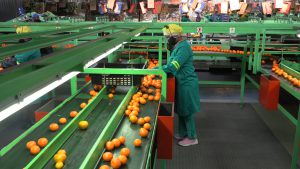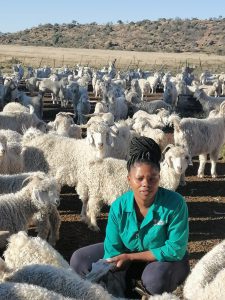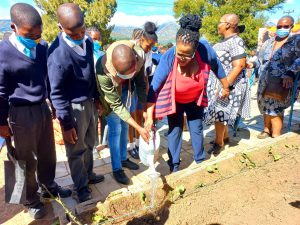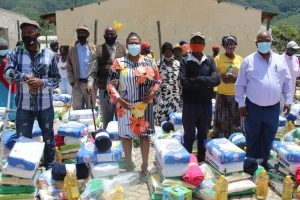
by Olwetu Batyi | Mar 1, 2022 | Uncategorized

Government will soon launch a new business bounce-back scheme aimed at supporting businesses in distress owing to the Covid-19 pandemic, finance minister Enoch Godongwana has announced. Making the announcement while delivering the 2022 Budget Speech on Wednesday, the minister said the scheme would use two mechanisms that would be introduced sequentially. First, small business loan guarantees of R15bn would be facilitated through participating banks and development finance institutions.
“This allows access for qualifying non-bank small and medium loan providers. Government will partner with loan providers by underwriting the first 20% of losses for banks and other eligible small and medium loan providers.
“The eligibility criteria, including the requirement for collateral, has been loosened. This mechanism will be launched and be operational next month.” Second, by April this year, government intends to introduce a business equity-linked loan guarantee support mechanism.
“We intend to bring the total support package through the bounceback scheme to R20bn. The equity support mechanism of this scheme will be facilitated through DFIs [development finance institutions]. It will also be available to qualifying non-bank small and medium finance providers,” Godongwana said.
A Budget Review document accompanying the speech reveals that government will, over the next three years, spend R721bn to promote faster and sustained inclusive economic growth to address unemployment, poverty and inequality plaguing the country. In the 2022 Budget Review, the Treasury said over the Medium Term Expenditure Framework (MTEF), expenditure would in this regard increase at an average annual rate of 8.5%, from R201bn in 2021/2022 to R256.8bn in 2024/2025.
The document states that over the medium term, the department of small business development would promote youth entrepreneurship by supporting at least 15,000 youth-owned enterprises.
“It will also reintroduce the Youth Challenge Fund at an estimated cost of R91.3m, harnessing creative solutions to address youth unemployment,”
The document reads. Noting that access to finance, particularly for the early stages of business development, is crucial to sustain small businesses, The Treasury said it would continue rolling out the Township and Rural Entrepreneurship Fund, implemented through the Small Enterprise Finance Agency, at an estimated cost of R2.9bn. Department allocations The Treasury said the government had allocated R1.3bn to the Agricultural Production, Biosecurity and Resources Management Programme in the department of agriculture, land reform & rural development for inspection, quarantine and biosecurity.
The Budget Review states that among other things, the allocation will also be used to strengthen the biosecurity, sanitary and phytosanitary standard required by international markets.
“To ensure sustainable development and social justice, R14.6bn is allocated for land reform and restitution, and R6.8bn is allocated for blended finance programmes, farmer development and post-settlement support initiatives.”
The department of science and innovation is allocated R28bn over the MTEF period. In this regard, priorities will include implementing the 2021-2031 plan on science, technology and innovation —which is expected to support mining, manufacturing and agricultural innovation, and supporting the National Research Foundation.
The Treasury allocated R360m to the department of tourism for it to focus on supporting recovery in the tourism sector through the pilot phase of the Tourism Equity Fund introduced in 2021. A further R240m is allocated to enhance tourism assets and infrastructure, with R80m being reprioritised to support short-term jobs in tourism.
The department of forestry, fisheries & the environment has reprioritised R244m over the MTEF period to improve institutional capacity and modernise meteorological services at the South African Weather Service. “A total of R17.8bn is allocated over the next three years to support business investment in new equipment and infrastructure through incentive programmes such as the automotive investment,” reads the document. —

by Olwetu Batyi | Mar 1, 2022 | Uncategorized

New SA-China citrus protocol to benefit East Cape farmers
Citrus farmers in the Eastern Cape are set to benefit from the new citrus protocol signed between SA and China. The old protocol had more stringent regulations on cold requirements for lemons, previously at 0.6°C or below.
The new protocol allows for 3°C for storage spanning a maximum of 18 days. The new protocol with China was brokered by agriculture; land reform and rural development minister Thoko Didiza. Together with Eastern Cape rural development and agrarian reform (DRDAR) MEC Nonkqubela Pieters, Didiza witnessed the first shipment of lemons to China from the Durban harbour.
The Eastern Cape, which is SA’s biggest lemon producer, will export its produce under the new protocol. The province produces 42% of SA’s total production. Of the 30-million cartons of lemons that SA exported in 2021, 11.3-million came from the Eastern Cape.
It is estimated that lemon exports to China will generate an additional R325-million and create 800 new jobs in the country. Black farmers are also participating in the export market, with a 40% increase in volume to 1.6m carton exports in 2020. During his state of the province address Eastern Cape Premier Lubabalo Oscar Mabuyane said:
“Our province is an exporter of agricultural commodities to international markets. Today lemons produced from our province were shipped to China at the Durban port. While we celebrate this milestone, we want the produce from our farmers to be shipped from our ports and we are engaging Transnet regarding improvements at the East London port.”
The industry is also a significant job creator, employing some 120,000 people nationally. Some 26,000 of those are on Eastern Cape farms and pack houses. The Sundays River Local municipality contributes more than 4,000 jobs alone.
During picking and packing season, that number grows by 8,000. The DRDAR is assisting farmers with lemon orchard development while also working towards improving access to water, logistics, production inputs, infrastructure and new markets through compliance and accreditation programmes.

by Olwetu Batyi | Mar 1, 2022 | Uncategorized

Quality wool does the talking for female farmer
In a male-dominated industry where beginners and women are said to be overlooked, forcing them to double their efforts to be recognised, Dintle Maphala lets the quality of her wool speak for itself. Maphala, a 28-year-old farmer in Aliwal North, is one of the farmers capacitated by the department of rural development and agrarian reform (DRDAR).
Through the DRDAR’s livestock improvement scheme — a programme that invests in farmers through the provision of livestock of superior genes — Maphala recently received 28 angora ewes and two angora buck s. The department’s assistance has enabled the passionate young female farmer to produce mohair from her herd of 302 goats. Some of her herd are a mixed breed of angora and boer goats. While these goats give her large volumes, it is of an inferior quality.
“During shearing seasons I’d sell big bales but the money I’d get didn’t correspond with the amount of fur I had produced, and this was all because of the quality,” Maphala said.
She said her herd was slowly improving with the addition of pure angoras — a breed known for its pricey and quality wool. With training on wool production by Mohair SA and the assistance of the DRDAR, Maphala, who holds a farming management qualification, said it was now up to her to su cceed.
She shears twice a year and in the past year made a total of R200, 000 from sales. Now she is aiming for the stars.
“All the recent developments on my farm have nudged me only inches away from my dream. The DRDAR has given me the necessary support and Mohair SA taught me the ropes on wool production and even helped me with the market. Everything is just flowing now,” she said.
The DRDAR has also invested in the fencing of Maphala’s farm and met her primary wool production needs through the provision of a shearing shed with all its accessories, starting with a baling machine, sorter and compressor. Describing government support as a springboard for her business, Maphala said government investment would assist her in overcoming some of the challenges she had been dealing with.
“As a young farmer, especially a woman, I have always had to work even harder and double my efforts to be recognised in the industry, whereas it’s not the case with my male counterparts. But from now on the quality of my wool will do the talking and open more doors for the business,” sh e said.
On her 287ha Goedehoop farm, which she received from her parents in 2016, she also farms cattle, poultry and vegetables. In 2020, she was chosen to undergo poultry production training at the Tsolo Agriculture and Rural Development Institute (Tardi) — an initiative of the Office of the Premier. A poultry production facility is being constructed on her farm, courtesy of the highest office in the province.
“As I am part of the YARD programme of the Eastern Cape province, there’s is no stone I will leave unturned to access opportunities so I can grow in agriculture and encourage entrepreneurship for black people, especially youth and females,” Maphala said.
“I’m planning to be one of the ambassadors in making sure that the youth sees agriculture as a career and a sector that has potential to create employment and feed the nation.” On her farm, she has two permanent employees and 18 temporary workers who she employs during periods of shearing and vaccination.

by Olwetu Batyi | Mar 1, 2022 | Uncategorized

MEC brings joy to learners
By Thozi kaManyisana
Rural development and Agrarian Reform (DRDAR) brought smiles and jubilation to 180 disadvantaged learners in the northern parts of Sarah Baartman District Municipality.
While DRDAR MEC Nonkqubela Pieters brought the message of “love Agriculture” as her key message to the schools she has adopted, she also brought “goodies to restore dignity” of learners
The department visited the schools, including Misgund Junior Secondary School and Louterwater Primary School as well as Joubertina Junior Secondary School on Monday.
On Tuesday, the schools included Qhayiyalethu Comprehensive School, Gustav Reichel Primary School and Coldstream Junior Secondary School.
Apart from demonstration of planting seedlings and trees in their school gardens, the identified learners were handed over with school bags, school shoes and dignity packs that included sanitary towels, roll-on, toothpaste , toothbrush, washing rag and soap.
The MEC noted that some of the leaners who received the school shoes from the department were either barefoot or wearing takkies to school.

“While I am here to instill love of Agriculture and show there’s bright future in the sector, I’m happy that I brought these goodies to restore your dignity.
“You are coming from poor backgrounds but you can become prosperous as the background doesn’t determine one’s future.
“Go on and become shinning stars , dream big and make those dreams a reality,” said the MEC.
She said she was interested in seeing the learners results improve hence “it is important to work seriously.”
“We want all schools to start have food gardens so that the learners can start seeing the value of agriculture from a young age,” she added.
Doris Luzwati, from MEC’s constituency office urged parents to “take a key role in children’s education so that teachers can easily deal with kids.”
A twelve-year-old Johander Kleinbooi of Qhayiyalethu Comprehensive School was wearing takkies to the school said he was “very thankful to the department.”
“I’m very happy because I will be able to walk around the with my head up and not feel different because I don’t have schools,” he said.
In all the schools, the gesture of starting food gardens and the donation of seedlings was warmly welcomed.
Gustav Reichel Primary School principal Coeleen van Zyl said they “appreciate the assistance from the bottom of our hearts.”
The MEC identified 12 schools that will be assisted by department as part of the MEC’s adopt a School Programme that was pronounced by the Cabinet.

by Olwetu Batyi | Dec 21, 2021 | Uncategorized
Pieters calls for responsible festive season celebrations
By Sanele James
A total of 100 households in Somerset East under the Blue Crane Route Local Municipality are looking forward to this year’s festive season celebrations.
This is after MEC for Rural Development and Agrarian Reform, Nonkqubela Pieters took surprise early Xmas party for the elderly and children to the small town of the Karoo.
Pieters distributed food parcels and educational toys to the needy locals with majority of the beneficiaries being women.
Thirty of the beneficiaries came from Cookhouse, 15 from Pearston and 55 from the hosting Somerset East.
Dressed in Santa Clause attire, Pieters also handed out 100 toys among 50 boys and 50 girls.
Pieters took the opportunity to denounce acts of abuse against women and children and further lectured locals about the novel Corona Virus.
“This time of the year is characterised by exchanging of gifts and love. We are also here to do the same –celebrate and be merry with you. But as we celebrate the festive season, let’s do it responsible and fight the scourge of gender-based violence and the abuse of children.
“As we celebrate, let’s be protective of the vulnerable and elderly. Let’s not only protect each other against abuse but also against the Corona Virus,” she pleaded with the beneficiaries.
The Xmas party took place at the Somerset Youth Centre under strict Covid-19 protocols.
Among the beneficiaries was Eunice Clarkson. The 68-year-old used to work as a cleaner at a local shop but she unfortunately lost her job early this year when her employer closed shop after it couldn’t recover from the Covid-19 level 1 restrictions.
“I am here with my granddaughter who has also received a doll as her Christmas gift. She has always wanted one but I couldn’t get her the toy because we channelled the little we had towards other family needs,” she said.
The list of the beneficiaries was compiled by the municipality through its database of indigent residents.
Among those who attended the event was Mayor for Blue Crane Route Local Municipality, Bonisile Manxoweni.











